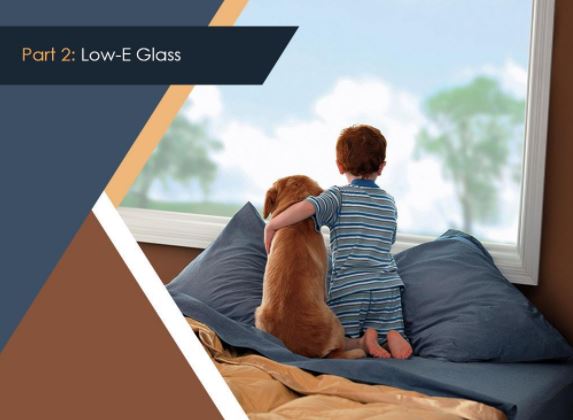Ordinary glass panels are great for letting natural light through and controlling the flow of air in and out of the home. Unfortunately, they let heat in and out as well, whether or not a window is actually open. This means that during warmer days, heat from the sun can pour in through a window and increase indoor temperature in the home. During colder days, on the other hand, heated air indoors can escape, making it more difficult for your HVAC system to regulate temperature inside the home. This leads to a spike in energy use, which will definitely appear on your electricity bill.
To solve this problem, window manufacturers turned to advancements in technology to come up with a way to keep indoor heat in and outdoor heat out. The result was double-pane, low-emissivity glass. Low-E glass features a microscopically thin layer of metallic oxide coating that works to prevent heat from passing through without impeding the amount of natural light that a window lets in.
The Benefits of Low-E
In the home, low-E windows can:
- Improve Energy Efficiency. Because low-E glass keeps indoor heat in and outdoor heat out, it greatly aids in stabilizing indoor temperature, which means your heating and cooling systems don’t have to work doubly hard to keep you comfortable. This prevents unnecessary energy use, which will present itself as savings on your electricity bill down the line.
- Prevent Interior Fading. As low-E glass keeps infrared light at bay to prevent passive heating, it also blocks out ultraviolet rays, which is responsible for interior fading. This means even without the use of window treatments, you can keep your furniture, flooring, and wall covers looking their best despite being located in close proximity to a window.
- Protect Against Broken Glass. Low-E glass is also one of the safest as its protective coating not only keeps heat from passing through, but also prevents the window from shattering into a million pieces when broken. Therefore, should there ever be an accident involving the window’s glass panel, the glass may break, but it will still be held in place, keeping those in the immediate vicinity safe.
All windows need frames. In Part 3, we’ll be discussing today’s best window framing material: composites. Stay tuned!





